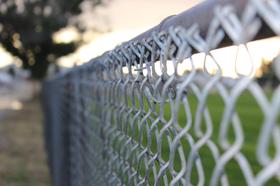Top Rankings
Graham County Schools School District ranks among the top 20% of public school district in North Carolina for:
Category
Attribute
Graduation Rate
Highest graduation rate (Top 5%)
Student Attention
Lowest student-teacher ratio (Top 1%)
For the 2025-26 school year, there are 3 public schools serving 1,117 students in Graham County Schools School District. This district's average testing ranking is 2/10, which is in the bottom 50% of public schools in North Carolina.
Public Schools in Graham County Schools School District have an average math proficiency score of 31% (versus the North Carolina public school average of 51%), and reading proficiency score of 39% (versus the 50% statewide average).
Minority enrollment is 24% of the student body (majority American Indian), which is less than the North Carolina public school average of 57% (majority Black and Hispanic).
Overview
This School District
This State (NC)
# Schools
3 Schools
2,764 Schools
# Students
1,117 Students
1,547,014 Students
# Teachers
93 Teachers
100,085 Teachers
Student-Teacher Ratio
12:1
12:1
Student By Grade
District Rank
Graham County Schools School District, which is ranked within the bottom 50% of all 320 school districts in North Carolina (based off of combined math and reading proficiency testing data) for the 2021-2022 school year.
The school district's graduation rate of 92% has increased from 85-89% over five school years.
Overall District Rank
#262 out of 325 school districts
(Bottom 50%)
(Bottom 50%)
Math Test Scores (% Proficient)
(21-22)31%
51%
Reading/Language Arts Test Scores (% Proficient)
38%
50%
Science Test Scores (% Proficient)
60%
63%
Graduation Rate
(21-22)90-94%
86%
Students by Ethnicity:
Diversity Score
0.40
0.71
% American Indian
18%
1%
% Asian
n/a
4%
% Hispanic
5%
21%
% Black
n/a
25%
% White
76%
43%
% Hawaiian
n/a
n/a
% Two or more races
1%
6%
All Ethnic Groups
District Revenue and Spending
The revenue/student of $14,888 is higher than the state median of $11,187. The school district revenue/student has stayed relatively flat over four school years.
The school district's spending/student of $15,053 is higher than the state median of $11,612. The school district spending/student has stayed relatively flat over four school years.
Total Revenue
$17 MM
$17,307 MM
Spending
$17 MM
$17,964 MM
Revenue / Student
$14,888
$11,187
Spending / Student
$15,053
$11,612
Best Graham County Schools School District Public Schools (2025-26)
School
(Math and Reading Proficiency)
(Math and Reading Proficiency)
Location
Quick Facts
Rank: #11.
Robbinsville High School
(Math: 60-79% | Reading: 55-59%)
Rank:
Rank:
8/
Top 30%10
301 Sweetwater Road
Robbinsville, NC 28771
(828) 479-9830
Robbinsville, NC 28771
(828) 479-9830
Gr: 9-12 | 342 students Student-teacher ratio: 11:1 Minority enrollment: 27%
Rank: #22.
Robbinsville Middle School
(Math: 30% | Reading: 42%)
Rank:
Rank:
3/
Bottom 50%10
301b Sweetwater Road
Robbinsville, NC 28771
(828) 479-9840
Robbinsville, NC 28771
(828) 479-9840
Gr: 6-8 | 252 students Student-teacher ratio: 13:1 Minority enrollment: 26%
Rank: #33.
Robbinsville Elementary School
(Math: 28% | Reading: 29%)
Rank:
Rank:
2/
Bottom 50%10
54 Moose Branch Road
Robbinsville, NC 28771
(828) 479-9850
Robbinsville, NC 28771
(828) 479-9850
Gr: PK-5 | 523 students Student-teacher ratio: 12:1 Minority enrollment: 22%
Frequently Asked Questions
How many schools belong to Graham County Schools School District?
Graham County Schools School District manages 3 public schools serving 1,117 students.
What is the rank of Graham County Schools School District?
Graham County Schools School District is ranked #259 out of 320 school districts in North Carolina (bottom 50%) based off of combined math and reading proficiency testing data for the 2021-2022 school year. This district ranks in the top 20% of North Carolina school districts for: Highest graduation rate (Top 5%) and Lowest student-teacher ratio (Top 1%)
What is the racial composition of students in Graham County Schools School District?
76% of Graham County Schools School District students are White, 18% of students are American Indian, 5% of students are Hispanic, and 1% of students are Two or more races.
What is the student/teacher ratio of Graham County Schools School District?
Graham County Schools School District has a student/teacher ratio of 12:1, which is lower than the North Carolina state average of 15:1.
What is Graham County Schools School District's spending/student ratio?
The school district's spending/student of $15,053 is higher than the state median of $11,612. The school district spending/student has stayed relatively flat over four school years.
Recent Articles

School Choice vs. Neighborhood Schools: Key Factors
Explore school choice vs. neighborhood schools in 2025. Learn key factors parents should weigh when deciding the best fit for their child.

Best School Match 2025: Public vs Charter vs Magnet
Compare 2025 public, charter, and magnet school options with updated data, trends, and strategies to find the best fit.

Public School Boundaries and Equity in 2025
Explore how public school boundaries shape access, equity, and opportunity for students in 2025. Learn the impact on families and education policy.





